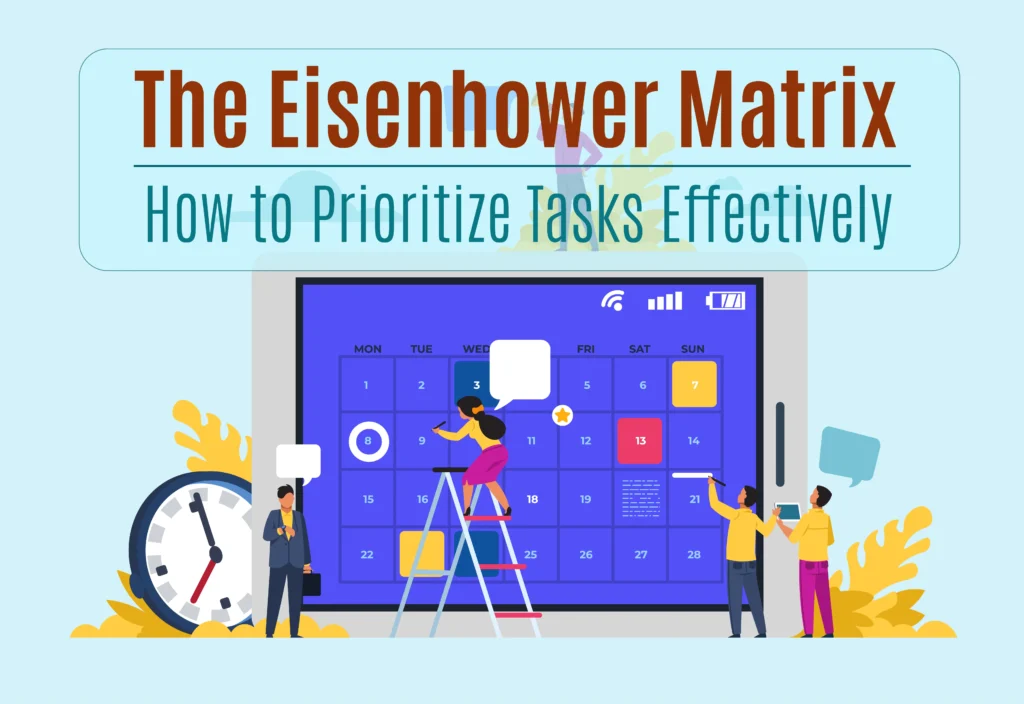10 Habits of Highly Successful Entrepreneurs
Entrepreneurship is an exhilarating journey that requires more than just a great idea. While many embark on the entrepreneurial path, only a select few rise to the top and create lasting success. The difference? It often comes down to habits. Habits shape who we are and how we navigate the challenges that come with building and running a successful business.
In this blog, we’ll explore the 10 habits that highly successful entrepreneurs embody. These behaviors not only contribute to their business success but also play a significant role in personal growth and satisfaction. Whether you’re a seasoned entrepreneur or just starting, adopting these habits can propel your career to new heights.

Strong Personal Discipline
Success in entrepreneurship requires discipline. This trait is fundamental, not only in building a business but in ensuring sustainable growth and personal productivity.
Habit 1: Time Management
Time is the most precious resource for any entrepreneur. Highly successful entrepreneurs understand the importance of maximizing their time by organizing and prioritizing tasks efficiently.
Techniques for Time Blocking
Time blocking is a powerful technique many entrepreneurs use to structure their day. By assigning specific time slots to particular tasks or projects, entrepreneurs can focus more intently without distractions. For instance, scheduling mornings for deep work—like developing strategies or product innovation—while using afternoons for meetings, emails, and administrative tasks, ensures productivity peaks at the right times.
Additionally, using tools like calendars, task managers, and automation tools can help in time management. The key is to remain consistent and disciplined in adhering to the schedule, even when unexpected challenges arise.
Habit 2: Setting Clear Goals
Successful entrepreneurs are goal-driven. Setting clear, actionable goals gives them a roadmap to follow and helps measure progress over time.
SMART Goals
The most effective goals are SMART: Specific, Measurable, Achievable, Relevant, and Time-bound. For example, instead of setting a vague goal like “increase revenue,” a SMART goal would be: “Increase monthly revenue by 20% over the next six months by launching a new marketing campaign.” This framework provides clarity and focus, allowing entrepreneurs to concentrate their efforts on what truly matters.
By consistently setting, reviewing, and adjusting their goals, entrepreneurs can stay on track toward their long-term vision while adapting to short-term changes.
Habit 3: Accountability
Entrepreneurs often work independently or lead small teams, making accountability an essential aspect of their success. Without oversight, it’s easy to drift off course, which is why successful entrepreneurs build accountability into their routine.
Building Accountability Networks
One effective way entrepreneurs hold themselves accountable is by forming accountability networks. These can include mentors, business partners, or mastermind groups—people who challenge them, provide feedback, and encourage them to stay true to their goals. Regular check-ins with these groups ensure that entrepreneurs stay disciplined and focused on their commitments.
Relentless Learning
The world of business is constantly evolving, and successful entrepreneurs never stop learning. They embrace education as a lifelong journey.
Habit 4: Continuous Learning
In a world where industries shift quickly, continuous learning helps entrepreneurs stay ahead of the curve. Successful entrepreneurs actively seek out new knowledge to improve themselves and their businesses.
Self-Education Methods
Entrepreneurs often use a variety of self-education methods, such as reading books, attending seminars, taking online courses, and listening to industry podcasts. Whether learning about new technologies, market trends, or leadership strategies, these entrepreneurs understand that personal growth directly impacts business success.
Some entrepreneurs dedicate an hour a day to self-education, while others commit to learning during downtime, like while commuting or exercising. The goal is consistent learning, no matter the method.
Habit 5: Learning from Failures
Failure is an inevitable part of entrepreneurship, but successful entrepreneurs view it as an opportunity for growth rather than a setback.
Adapting After Failure
The ability to adapt after failure separates successful entrepreneurs from the rest. Instead of becoming discouraged, they analyze what went wrong and adjust their approach. They see each failure as a stepping stone toward improvement, allowing them to develop better strategies and build resilience.
A classic example is how many tech startups iterate on product ideas after failed launches. Entrepreneurs in this space understand that failing fast and learning from those failures is a recipe for eventual success.
≫ Related Post: How to Become an Entrepreneur Without Quitting Your Job
Strong Networking Skills
No entrepreneur succeeds in isolation. Building and nurturing a network is critical for generating business opportunities, partnerships, and gaining valuable insights.
Habit 6: Building Relationships
Successful entrepreneurs prioritize building meaningful relationships. They know that the more valuable connections they make, the more opportunities they create for themselves and their businesses.
Utilizing Social Media
In the modern world, social media is one of the most powerful tools for networking. Platforms like LinkedIn, Twitter, and Instagram provide entrepreneurs with access to industry leaders, potential customers, and influencers. Successful entrepreneurs don’t just use these platforms to broadcast their achievements—they engage with their audience by sharing valuable content, responding to comments, and participating in discussions.
By networking online and in person, entrepreneurs can expand their influence, generate leads, and collaborate with like-minded individuals.
Habit 7: Giving Before Taking
Another important principle that successful entrepreneurs follow is the idea of giving before taking. They recognize that offering value to others upfront helps build trust and strong relationships.
The Importance of Reciprocity
Reciprocity is key in networking. Entrepreneurs who focus on giving—whether it’s advice, resources, or connections—often find that people are more willing to help them in return. This creates a reciprocal relationship where both parties benefit.
For example, an entrepreneur might provide a referral to a business associate without expecting anything in return, knowing that this generosity could lead to future collaboration or opportunities.
Adaptability and Innovation
In a rapidly changing business environment, adaptability and innovation are essential for staying competitive.
Habit 8: Embracing Change
Highly successful entrepreneurs embrace change rather than resisting it. They understand that change is inevitable, and instead of fearing it, they see it as an opportunity for growth.
Innovation and Flexibility
Entrepreneurs who embrace change are often the first to innovate. By being flexible and open to new ideas, they are able to spot trends and adapt their business models accordingly. This mindset has been key to the success of entrepreneurs in industries like tech, where disruption is common. Companies like Airbnb and Uber are examples of businesses that capitalized on changing market demands to create entirely new business models.
Habit 9: Problem-Solving Mentality
Successful entrepreneurs are natural problem solvers. They don’t shy away from challenges; instead, they tackle them head-on with a solution-oriented mindset.
Identifying Challenges Early
The best entrepreneurs are proactive problem solvers who identify challenges before they escalate. By addressing issues early, they can avoid costly setbacks. They also cultivate a team culture that encourages creative problem-solving, ensuring that their business remains agile and adaptable.
For example, an entrepreneur who notices early warning signs of a cash flow issue might implement a solution, such as renegotiating vendor contracts or launching a short-term promotional campaign, to keep the business on track.
Mental and Physical Well-being
Entrepreneurship can be stressful, and maintaining mental and physical well-being is critical to long-term success.
Habit 10: Maintaining Work-Life Balance
Successful entrepreneurs know that burnout is real, and they take steps to avoid it by maintaining a healthy work-life balance.
Techniques for Stress Management
Entrepreneurs deal with high levels of stress regularly, so they need effective methods for managing it. Techniques like mindfulness, meditation, and regular breaks are commonly used by successful entrepreneurs to recharge and regain focus. Meditation, for example, can reduce stress, improve concentration, and increase productivity.
Regular Exercise and Meditation
Physical well-being is just as important as mental health. Entrepreneurs who incorporate regular exercise into their routines often report higher energy levels and clearer thinking. Whether it’s a daily run, gym session, or yoga, physical activity helps manage stress and improves overall well-being.
Meditation and mindfulness practices have also gained popularity among entrepreneurs for helping them manage anxiety, increase self-awareness, and maintain emotional balance.
Conclusion
Building a successful business requires more than just a vision—it requires dedication, discipline, and the right habits. The 10 habits discussed in this article—ranging from time management to continuous learning, networking, adaptability, and maintaining well-being—are foundational practices that help entrepreneurs not only achieve success but sustain it over time.
By integrating these habits into your entrepreneurial journey, you’ll be better equipped to navigate the challenges, capitalize on opportunities, and create lasting success in both business and life.
















